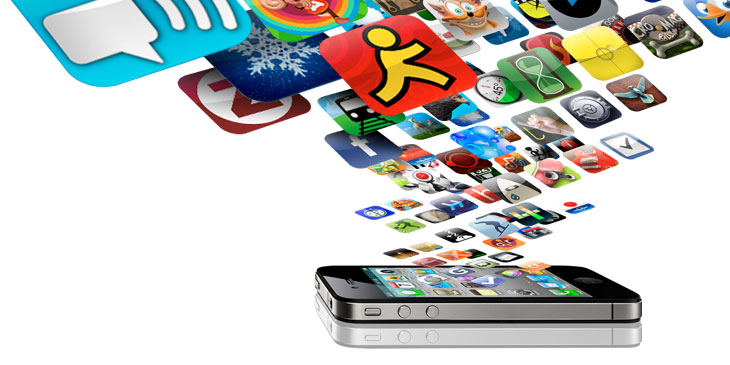Editor’s note: Saar Gur is a general partner at Charles River Ventures. Follow him on Twitter @saarsaar.
A new generation of Smart Mobile Services is coming. We don’t need to wait for Google Glasses to build the next generation of world-changing consumer services. Many of the enabling features for these services exist in our smartphones today.
What do I mean by a Service versus an App?
Well, most mobile app developers have built their user experiences to look a lot like a desktop application jammed on a phone. I open up the app when I need something. I open up Outlook on my desktop to check email (I am on Gmail, but work with me here), and I open up my Yelp app on my iPhone when I need a restaurant recommendation. Same, same.
I am either in it, or it is off. For the mobile apps running in the background (e.g., email), they currently don’t add any utility to my offline experiences and interactions. This will continue to work for many apps going forward, but there will be an entire new generation of Services (vs. Apps) that will run in the background, be with me, and add value to my daily flow, productivity and experiences.
What do I mean by “Smart”?
“Smart” means understanding a user and understanding their physical and mental state.
Smart services will process user information in the background to make accurate predictions around real-time user intention and will offer suggestions, results and different user interfaces/interactions based on their prediction of state.
Smart example: Google predictive search in mobile: By adding location data, Google can predict better search queries and search results – improving the user experience.
Very few apps today do any processing to figure out the context and state of the user. They could use passive location data, where I am, who I am with, web services and information, etc. to make assumptions about the user (e.g., Saar is at home now, or Saar is driving) and interact with me differently as a function of state.
A change in user interaction
Current mobile apps use the notification channel and SMS to bring me back to their apps. But very few have “smart notifications” that take advantage of my current context. These next generation services will only interrupt me when they have something valuable to add that is in-context. And they will do a much better job building different user interfaces based on my state.
As I think about what these new Smart Services will look like, here are some of the characteristics I have been noodling on:
- The most disruptive ones will change our physical interactions and be additive to our offline experiences.
- Services will process things in the background, predicting our state with a high degree of accuracy.
- Many will primarily interact with the user through interruptions — and they only interrupt when they have something of value to add. (e.g., for Uber: Your car is arriving now.) They won’t feel “heavy” and bombard us with information overload – they will earn the right to interrupt with value.
- The user interface will look very different from existing web interfaces for some of these apps — as they won’t have things to suggest/interrupt a lot of the time, but when they do they will be
very helpful. Example: It is “ok” for the user interface to say: ”Close the app, we don’t have anything for you now.” - Understanding context will follow simple heuristics for some services and big data processing for others. As an example, many home automation applications may only need to know that I am in my house to
automate music, thermostats, etc. But more sophisticated data analysis and processing will be required for more complicated interactions/recommendations/transactions (ala Square payments).
If I have lost a bunch of you on this post at this point, I apologize. Another way and getting to the point is asking: Why can’t I have the services below today?
Diet – When I step into the gelato place (and you have a high degree of certainty that this is in fact what I am doing), why don’t you ping me and encourage to walk out and go down the street for frozen yogurt instead?
Music and home automation – Why won’t Sonos turn on automatically as I pull into my driveway during reasonable hours?
Driving — Why can’t an app notice in my calendar that I have to get to SF from Palo Alto and ahead of time warn me that 101 is jammed? Why do I still need to check? Highlight potential hiccups and problems proactively and otherwise remain silent.
Discover — If there is awesome location-based content (or people for that matter), how come it is so hard to discover?
(Any good brainstorm of location-based services will include these scenarios, and has for the past 10 years. But the enablers now exist for these services to become a reality.)
It is really early days and I am excited for what is to come. What do you think the most exciting smart services will do or look like?
Special thanks to Gentry Underwood from Orchestra for contributing many of the ideas and inspirations for this post.
